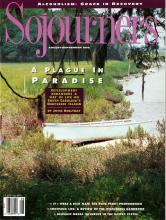"At last, now, I was thoroughly conscious that I desired alcohol. But what of it? I wasn't afraid of John Barleycorn. I had associated with him too long. I was wise in the matter of drink. I was discreet. Never again would I drink to excess.
"I knew the dangers and the pitfalls of John Barleycorn, the various ways by which he had tried to kill me in the past. But all that was past, long past. Never again would I drink myself to stupefaction. Never again would I get drunk. All I wanted, and all I would take, was just enough to glow and warm me, to kick geniality alive in me and put laughter in my throat and stir the maggots of imagination slightly in my brain.
"Oh, I was thoroughly master of myself, and of John Barleycorn."
- Jack London, John Barleycorn, or, Alcoholic Memoirs, 1913
I blinked like Lazarus, bewildered at my surroundings. I was sitting on a cold apartment floor in Washington, D.C., smoking a cigarette in the dark. Cool blue light from the street angled through the blind and painted my thighs in indigo stripes. I had no idea where I was or how I had gotten there.
I rocked back and forth nervously, like an anxious child waking from a nightmare. Objects near me gained definition in the shadows: a coffee table, television, magazines strewn on the floor. I heard a voice from another room--a woman sobbing. She was holding a hysterical, high-pitched dialogue with herself, and my name was peppered between curses.
In seconds a picture formed in my mind, a picture drawn from the jumbled phrases of her rage. A friend of hers had shown up at her apartment very late and howling drunk, passed out, woken shortly after in a crazed, alcoholic frenzy, and kicked a hole in her bedroom wall. And that friend was me.
It was hours before dawn on New Year's Day, 1991, and I had blacked out.
Read the Full Article

